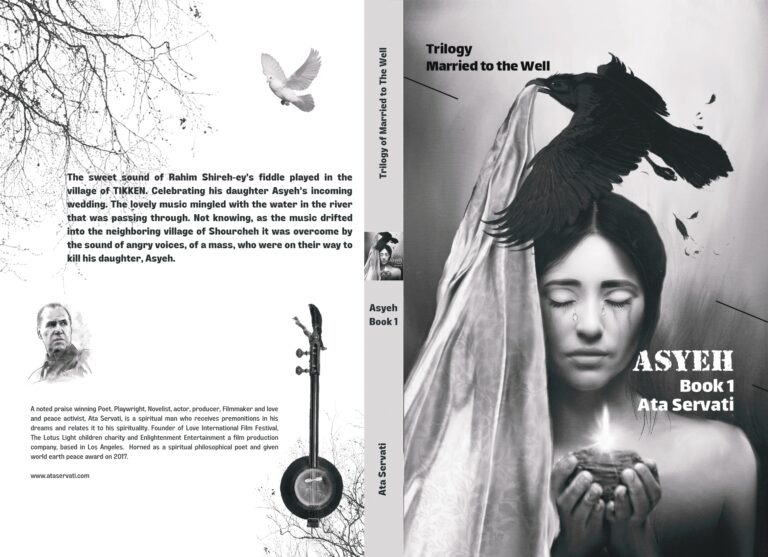
ASYEH
In a remarkable tale of love, set in the nineteenth-century villages of SHORCHEH and TIKKEN in Iran, the oppressive grip of religious fanaticism and rigid traditions dominates the lives of the villagers. Amidst this stifling atmosphere, an illicit love affair blossoms, intensifying an ongoing rivalry centered around a vital water well. The story revolves around Sattar, a young poet and the son of Tikken’s influential landlord, Assad Khan, who finds himself helplessly drawn to Asyeh, the beautiful daughter of a destitute druggy musician in Shourcheh. However, their love is deemed forbidden, adding a layer of complexity to their situation.
Adding to the turmoil is the powerful Religious clergy and manipulative Mulch Mahmood, who also falls for Asyeh. Driven to madness by unrequited love, he exploits his position to uphold an archaic tradition, seeking revenge by forcing Asyeh into marrying the village’s water well to claim her as his own. Amidst this chaos, a blind homeless beggar becomes entangled in the unfolding events, unwittingly becoming a pawn in the battle. Unbeknownst to the villagers, they unwittingly become soldiers of evil.
The tension escalates when the wealthy landlord’s son from the same village becomes enamored with Asyeh as well, refusing to relinquish his desires. Standing against him is his 12-year-old younger brother, who defies his sibling and both villages, aligning himself with the innocent young lovers, Asyeh and Sattar. Despite his tender age, he too harbors a profound love for Asyeh, further entangling the web of emotions and conflicts within the narrative.
The obsession surrounding Asyeh reaches a boiling point, leading to a potentially dangerous confrontation between the two villages and their people. To overcome the odds and survive, the two young lovers must fight against all odds, they must navigate deep-rooted traditions and the clash between the villagers and their loved ones. Will they emerge victorious and find a way to survive?
